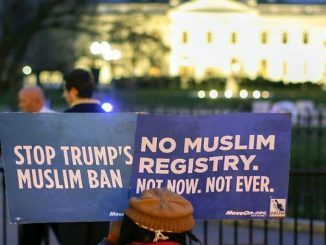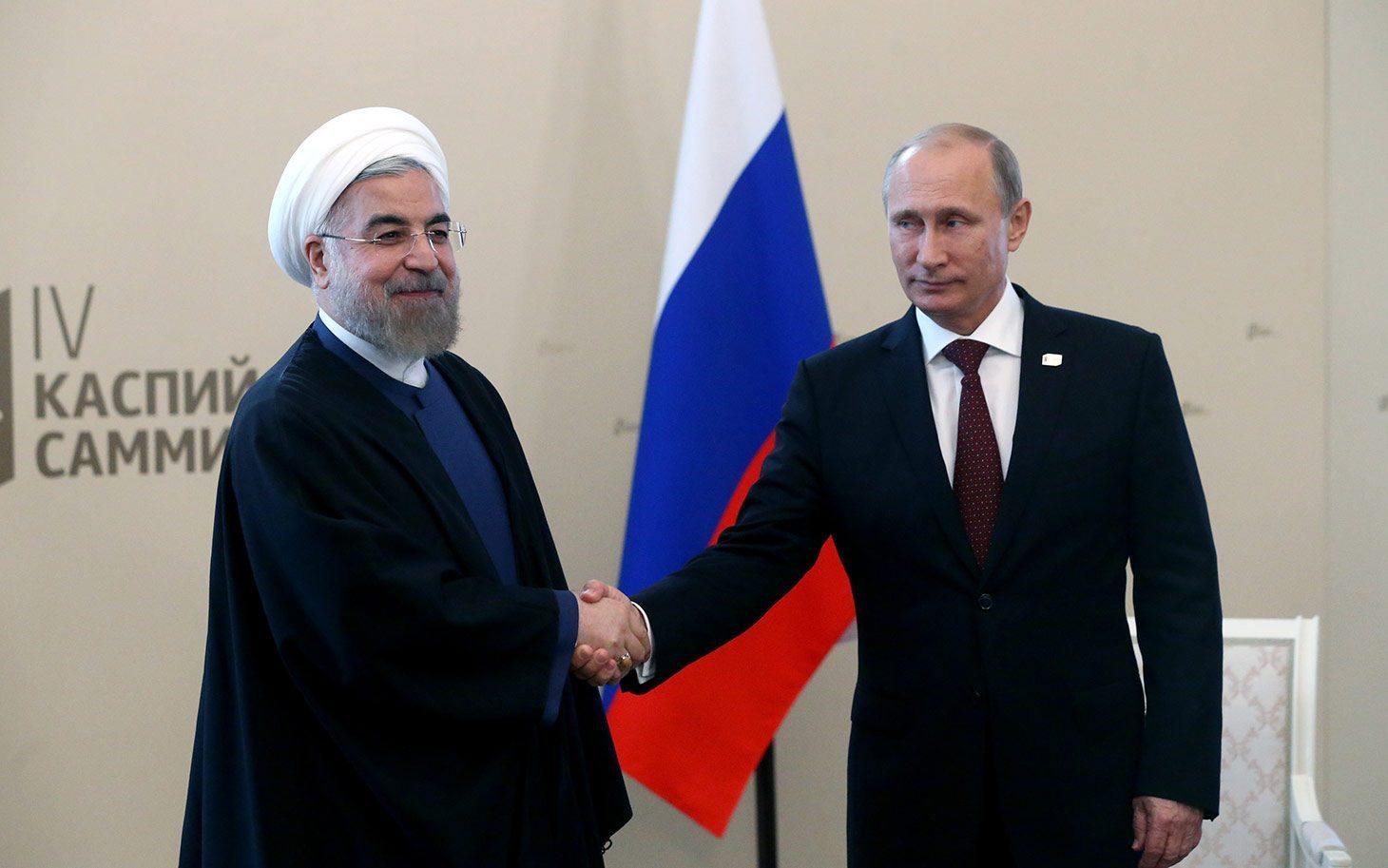
In letters obtained by POLITICO, dozens of firms express reticence and eagerness to jump into the Iranian market a year after the nuclear agreement while lawmakers and activists criticized their moves. Iran
When Nokia received a letter from the group United Against Nuclear Iran warning it of the risk of investing in the Islamist-led country, the Finland-based company’s response was pointed. The technological services it offers, Nokia wrote on June 8, “are crucial for the development of strong civil societies and the realization of human rights.”
General Electric, meanwhile, told UANI straight up in a separate letter on Jan. 19 that it is exploring the Iranian market in part because it is “in the best interests of GE’s shareowners and other stakeholders.
Then, there was Right Honorable Lord Norman Lamont of Lerwick, Britain’s trade envoy to Iran, who acidly dismissed several of UANI’s written assertions about engaging the Middle Eastern country.
“I agree that human rights are an important part of foreign policy, but it is essential to apply any policy on a consistent basis and avoid selectivity,” Lamont wrote on April 5. “I wonder whether you would suggest that we [ought] to have a trade embargo against China? What about Saudi Arabia? Is its human rights record any better than that of Iran?”
These and dozens of other letters, shared with POLITICO by UANI, provide a glimpse into the ongoing struggle over the fate of the Iran nuclear deal, which was reached a year ago Thursday and opened a narrow path for companies seeking to do business in a country long isolated by international sanctions.
UANI and other opponents of the deal are urging companies to think twice before investing in the Iranian market. Right-leaning think tankers still regularly testify before the Republican-led Congress on the weaknesses of the agreement. And some lawmakers are pushing bills that could undercut the nuclear deal or heap new pressure on Iran for its non-nuclear activities. News that Boeing has reached a tentative deal to sell passenger planes to Iran has particulary incensed Republicans, and some are trying to bar the sale.
“The Iran deal is going to be the Obamacare of this cycle and we intended to make sure that those who voted for giving billions of dollars to terrorists are held accountable by the American people,” said Josh Canter, a representative of Secure America Now, a conservative advocacy group.
The Obama administration insists the deal is working. Iran has dismantled much of its nuclear infrastructure, and in return, the U.S., the European Union and the United Nations have lifted a slew of nuclear-related sanctions on the country, allowing its badly hobbled economy to start recovering.
Still, Iranian leaders have complained that their country is not getting sanctions relief fast enough. That has led Secretary of State John Kerry and other U.S. officials to meet with business leaders to encourage them to invest in Iran within the new legal limits. It’s a complicated message, because the U.S. still has many sanctions on Iran — ones related to its human rights record, its ballistic missile program and its support for terrorism. At the same time, Kerry and U.S. officials have drawn fire from Republicans who allege that they are shilling for a rogue state.
United Against Nuclear Iran, a group founded in 2008, has aggressively tried to influence companies navigating the changed legal landscape. UANI insists it is not trying to derail the nuclear deal, but simply wants to correct misperceptions among firms who may believe that Iran — an enticing market with a youthful, well-educated population — is open for business with no strings attached.
“We wanted to professionally and thoroughly spread the word … of the enormous risk still associated with Iran,” said Mark Wallace, UANI’s chief executive officer. The ultimate goal is to get Iran to change its behavior on fronts beyond just its nuclear program, and that won’t happen without continued economic pressure on the country, Wallace added.
“We’re rooting for changes in Iran,” he said.
Obama administration officials question the motives of UANI and similiar groups, pointing out that scaring companies away from Iran could lead Iranian leaders to back out of the deal and resume an unrestrained nuclear program. That would have the “opposite effect of the stated purpose of some of these groups,” one U.S. official told POLITICO on Monday.
“If such groups are truly interested in ensuring that Iran cannot develop a nuclear weapon, then they should perhaps be focused instead on making sure that Iran continues to see it in their interest to stick to the deal,” the official said, adding, “Some of the messaging of these groups is inconsistent with U.S. government advice to companies, so companies should come to us for our views.”
UANI’s letters are detailed, tailored to the recipient and lengthy — some run 18 pages. They are filled with selective references to news articles describing Iran’s meddling throughout the Middle East and the danger it poses to the West. Many of the letters even mention Iran’s 1989 call for the killing of author Salman Rushdie over his allegedly blasphemous book,”The Satanic Verses,” and Iran’s persecution of religious minorities such as the Baha’is. The missives have been sent to companies, organizations, government bodies and individuals around the world. Some recipients were contacted simply because they participated in conferences about Iran.
The letters can be biting in tone.
“United Against Nuclear Iran (UANI) is dismayed to learn that you will be attending the 3rd Europe-Iran Forum,” the group wrote on April 27 to Joakim Reiter, deputy secretary-general for the U.N. Conference on Trade and Development. “While Iran cannot be stopped from participating in such conferences, there is no reason that a senior U.N. official would knowingly attend a platform for representatives of this oppressive regime to convince others to assist it in the rebuilding of its economy so that it can finance even greater irresponsible and nefarious behavior.”
UANI warned Chicago-based Boeing in a June 14 letter that its decision to enter the Iranian market “will give aid and comfort to a lawless regime that foments terrorism and unrest throughout the Middle East,” and that “the legal, political, financial, and reputational risks of doing business in Iran outweigh any theoretical benefit of commercial involvement in that market.”
In a similar letter the following day to Lockheed Martin, the group insisted: “Doing business in Iran will not only harm the financial interest of Lockheed’s shareholders, but it will endanger Lockheed’s employees and contractors who are forced to work in or travel to Iran.”
Over the past six months UANI has sent at least 200 letters, eliciting a few dozen responses that were shared with POLITICO. The responses vary in tone and length. Some are curt and vague. Some are defensive. Others are lengthy, and a few are outright dismissive of some of UANI’s claims. But nearly every company, organization or person who responds declares an intention to adhere to all regulations governing doing business with Iran, including still-existing sanctions.
Daimler AG, the German-based automotive corporation, quoted President Barack Obama’s description of the Iran deal as “the strongest non-proliferation agreement ever negotiated” in justifying its decision to re-enter the Iranian market. “This decision was made under careful consideration and thorough evaluation of all circumstances and in compliance with regulations and remaining sanctions in place,” the company wrote to UANI on May 4.
Sir Martin Sorrell, the chief executive officer of WPP, a prominent British communications services firm, told UANI in an April 5 email: “We are aware of geo-political risks in many markets in which we operate. However, as a general principle we believe, strongly, that engagement is a better policy than isolation.”
Wallace said that, in his view, “a lot of companies indicated they weren’t going back in yet, but they wanted to keep their options open. I think they’re still holding out hope.”
The responses to UANI also indicate that Boeing’s flirtation with Iran — which is legally complicated, but, the company insists, in line with U.S. regulations — has reverberated in the international business community. “Now, even Boeing is in the process of offering new aircraft to iran after getting a license from the U.S. government,” Hitachi, the Japan-based conglomerate pointed out in an April 28 letter.
The Boeing plans have stirred alarm in Congress, where the House of Representatives last week passed two pieces of legislation designed to block the company’s sales to Iran. Boeing is trying to sell passenger planes to Iran so that the country can replace its aging fleet, a deal some have said could be valued at $25 billion. But Republicans, as well as some Democrats, worry the aircraft or their parts will be misused by Iranian entities, such as Iran’s Revolutionary Guard Corps, that are accused of supporting terrorist groups.
Lawmakers also are using the one-year anniversary of the deal to push a flurry of other bills aimed at Iran, including one to expand sanctions on the country over its human rights abuses and other activities; measures to prevent the Export-Import Bank from providing direct or indirect financing to Iran; and a bill to make it even harder for the country to access dollar transactions.
Obama is likely to veto any measure he sees as undermining one of his signature foreign policy achievements. But, similar to Obamacare, the Iran nuclear deal remains a lightning rod for Republicans, and some are intent on continuing to attack it the same way they have the health reform law.
Secure America Now is planning to use social media and other platforms throughout this election season to rally voters to toss out lawmakers — senators in particular — who supported the nuclear agreement, Canter said. “When people find out the details about the Iran deal they hate the deal,” he insisted.
On the business front, U.S. companies will likely be the most reticent to invest in Iran, not least because so many American sanctions are still in place on the country. (Iran and the United States have not had formal diplomatic relations for more than 30 years.) But companies based in Europe and other parts of the world, including some who have operated in Iran in the past, may be willing to risk tapping into the potentially lucrative market.
“They’re companies, right?” said David Mortlock, a former National Security Council official with expertise on sanctions. Iran has “a young, consumer-oriented, well-educated population. It’s a good market. It’s just got some unique challenges.”
Aside from dealing with international sanctions, companies looking to invest in Iran will have to deal with its opaque and often unpredictable politics, as well as a business scene that has heavy state involvement. Some hardline factions in Iran oppose the nuclear deal; reports that some Iranian entities tried to buy nuclear materials after the deal was reached last July have been cast as an example of anti-deal forces seeking to sabotage the agreement.
Elizabeth Rosenberg, a former Treasury Department official now at the Center for a New American Security, said that uncertainty about the durability of the deal is one reason that many companies don’t want to rush to invest in Iran.
But, she noted, firms also are keenly aware that if they arrive too late, they “can’t negotiate good terms.”



